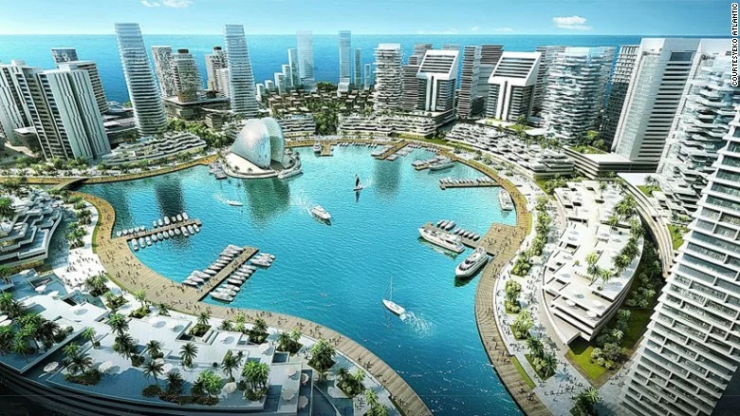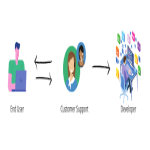Introduction
Africa is undergoing a digital transformation, and smart cities are at the heart of this evolution. With rapid urbanization, governments and private sectors are leveraging technology, data, and AI to enhance infrastructure, governance, and the overall quality of life. From Lagos to Nairobi and Kigali, cities are adopting smart technologies to solve pressing challenges such as traffic congestion, security, waste management, and energy consumption.
But what’s next for Africa’s smart cities? In this blog, we’ll explore their growth, the role of AI, IoT, and cloud computing, and how companies like Ozones are shaping the future of urban development.
1. What Are Smart Cities?
A smart city uses technology and data-driven solutions to improve efficiency, security, and sustainability in urban areas. This includes:
✅ Smart infrastructure – AI-powered traffic systems, smart grids, and automated waste disposal
✅ Digital governance – E-governance, blockchain-powered public services, and digital ID systems
✅ Sustainable solutions – Renewable energy, smart water management, and eco-friendly architecture
✅ IoT integration – Connected devices that enhance city-wide operations
2. Smart City Projects in Africa
Several African countries are already investing in smart city initiatives:
🇳🇬 Eko Atlantic (Nigeria)
A futuristic city being built on reclaimed land in Lagos, Eko Atlantic aims to be West Africa’s tech and financial hub, featuring smart infrastructure, green energy, and AI-driven security.
🇷🇼 Kigali Innovation City (Rwanda)
Rwanda’s tech-friendly policies have fueled the development of Kigali Innovation City, which integrates AI, blockchain, and smart public services to attract global tech investors.
🇰🇪 Konza Technopolis (Kenya)
Also called "Silicon Savannah," Konza City is Kenya’s biggest smart city project, focusing on IT, AI research, and green energy solutions.
🇪🇬 New Administrative Capital (Egypt)
A fully digital and AI-powered city, this capital will have 5G infrastructure, cashless payments, and AI-driven surveillance systems.
3. The Role of AI, IoT & Cloud Computing in Smart Cities
Modern smart cities depend on advanced technologies such as:
🔹 Artificial Intelligence (AI) – AI helps in predicting traffic, detecting crime, and automating city services. Ozones AI is working on AI-driven urban planning tools.
🔹 Internet of Things (IoT) – IoT sensors collect real-time data to monitor air quality, traffic flow, and energy usage. Ozones Cloud provides the infrastructure for data storage and analysis.
🔹 Cloud Computing – Cloud platforms enable governments and businesses to store and process vast amounts of data efficiently. Ozones Cloud offers secure, scalable solutions for smart cities.
4. Challenges & Roadblocks
Despite the progress, Africa’s smart cities face challenges:
❌ High infrastructure costs – Building smart cities requires billions in investment.
❌ Data privacy concerns – AI and IoT raise questions about cybersecurity and data protection.
❌ Digital divide – Internet access is still limited in some areas.
❌ Government policies – Some countries lack strong tech-friendly regulations.
5. What’s Next? The Future of Smart Cities in Africa
🚀 5G Expansion – Faster internet for seamless connectivity
🚀 AI-Driven Urban Planning – Smart algorithms optimizing city growth
🚀 Blockchain-Based Governance – Transparent and corruption-free public services
🚀 Renewable Energy & Smart Grids – Sustainable energy solutions for cities
🚀 Autonomous Vehicles & Drones – Smart transportation systems
Conclusion
The future of African cities is digital, AI-driven, and connected. Governments, businesses, and tech companies like Ozones are shaping the continent’s urban future with cloud computing, IoT, and AI solutions.
As Africa embraces smart city innovations, the next decade promises safer, smarter, and more efficient cities that will improve the quality of life for millions.
What do you think? Are smart cities the future of Africa? Share your thoughts in the comments!






